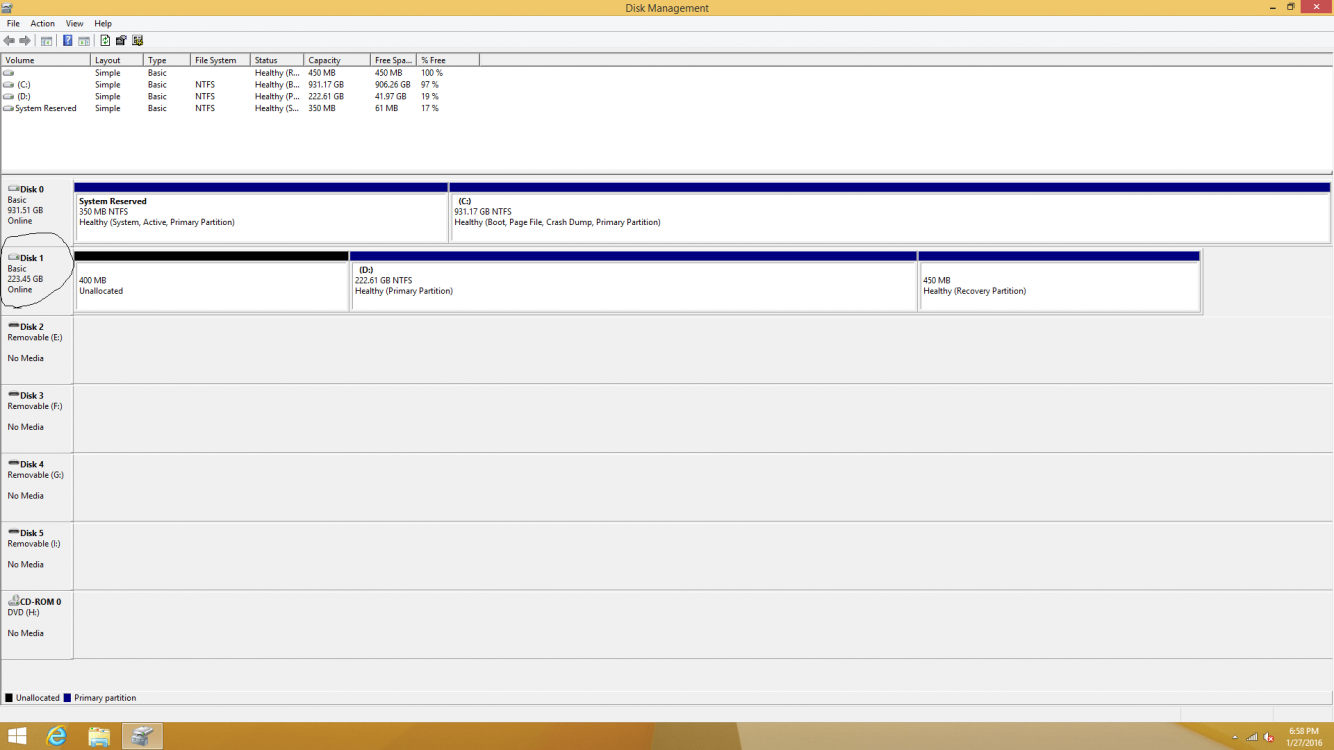I have a dell xps desktop. It came with a standard HDD with windows 10. I added an SSD when I bought it and have used that for the OS and applications, I was able to set it to boot to that drive, I formatted the HDD that came with the computer and used it as storage. This has been the case for around 3 months. Yesterday, the storage drive (the one that came with the OS and whatnot) was wiped with killdisk, not just re-formatted. Once the kill disk was completed I was still using the internet as usual with the SSD, since I had it as primary. I noticed I didn't see the storage drive listed under computer, so I rebooted. Now, It wouldn't boot to the ssd because I assume the original HDD has the boot manager on it, but the whole disk was zero'd. I installed 8.1 onto the HDD. I can now see my 224gb SSD in disk management. I just want to know how to make the ssd the
exclusive drive that runs the os, boot manager etc on this computer. Here is a pic of my disk managem ent screen
ent screen
exclusive drive that runs the os, boot manager etc on this computer. Here is a pic of my disk managem
 ent screen
ent screenMy Computer
System One
-
- OS
- Windows 8 Pro
- Computer type
- PC/Desktop
- System Manufacturer/Model
- HP Pavilion Elite
- Memory
- 16GB




